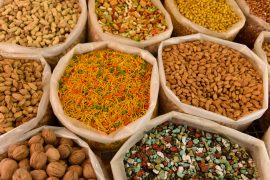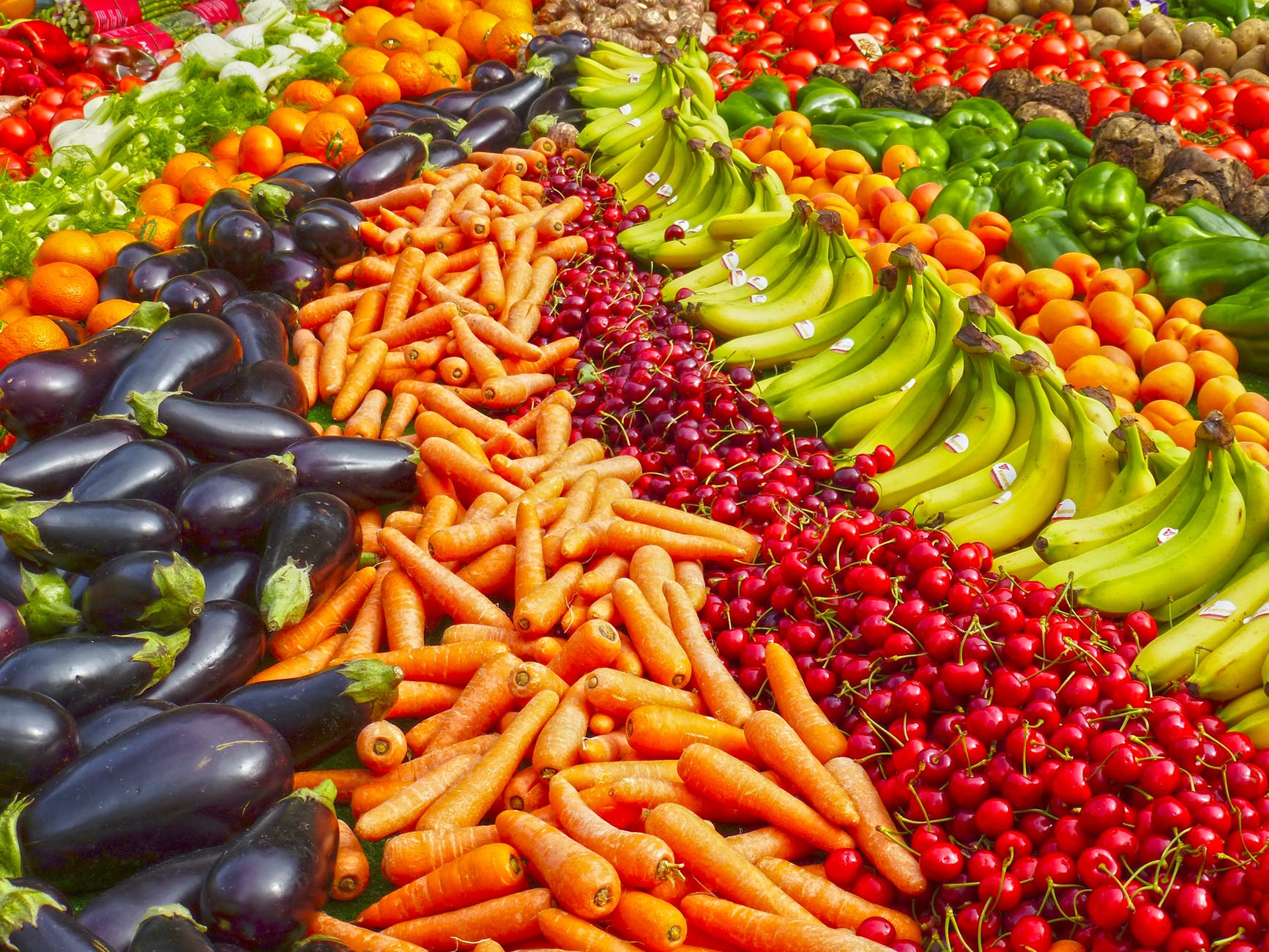USE YOUR FREEZER
- 9 times out of 10 the organic frozen produce at the store is cheaper than fresh, especially if the fruit or vegetable is out of season.
- Freeze all left overs using inexpensive mason glass jars or silicone ice molds for smaller portions.
- Freeze homemade cookie dough and other treats like almond freezer fudge, so you can have a treat ready to go in the appropriate portion size.
- Buy local produce when in season and freeze to save for out of season, for example in the spring and summer spread berries on a sheet pan and freeze overnight and then store in jars for the fall and winter.
- Double recipes and freeze leftovers, this works great with soups and stews.
- Freeze core kitchen staples like butter, cheese and bread scraps for bread crumbs or homemade croutons.
MAKE CHOICES
- Meat & dairy (animals products like chicken, eggs, cheese, butter, yogurt, milk, etc.) are the most important to buy organic because of the combined risk of pesticide, anti-biotic and cancer causing growth hormone exposure. Whatever you do, do not skimp here.
- Reduce meat and dairy consumption if you cannot afford organic – One way to do this is to be vegan before 6pm, as Mark Bittman explains in his latest book. For example, have a green smoothie for breakfast with ezekiel toast, and then a large salad with lentils at lunch or a wrap made with hummus and then at night choose high quality meat in small portions.
- Reduce amount of organic meat used by substituting half the portion with organic beans.
- Buy a whole organic chicken for less per pound, vs. just the breast, legs or wings which are more expensive per pound. You can use the carcass to make your own chicken broth.
- Use the “Clean 15” and “Dirty Dozen” lists available on ewg.org to help you navigate which products to buy organic (or take with you when you travel). For example, if you have a choice between more expensive organic red peppers and less expensive conventional asparagus – choose the asparagus. Asparagus naturally repel pests allowing it to be grown with minimal pesticides. Include red pepper in your diet when it is in season or you can find it cheaper at another grocery store.
- Do not buy pre-washed and ready to eat fruits and veggies, as they can cost twice as much.
- Skip conventional Starbucks (and other coffee shops). Buy organic coffee and tea such as: Larry’s Beans Organic Coffee and Numi and make it yourself. This will actually save you time in the morning too.
- Eat out only twice a week – eating organic at home is significantly less expensive than eating at organic restaurants.
BUY IN BULK
- Take advantage of the ‘buy one get one free’ sales or buy one get the other for a discounted price. You never know when it will go on sale again, so make sure to take advantage of it and store for later use. (This trick only works if you really love the product and it is a staple at your home – otherwise this could lead to wasted food)
- Always buy packaged staples on sale
- Buy unpackaged foods from bulk dispensers – I personally save a ton of cash by doing this, I buy everything from oat groats, to nuts, to dried fruit and lentils.
- Bring measuring cups with you to the grocery store if you are buying from bulk containers. That way you can get exactly the amount you need for a specific recipe and you won’t be paying for extra.
- Buy smaller organic spice packets or jars, old spices lose their medicinal qualities so it is smarter to buy in smaller quantities. For example, Earth Fare has little pre-portioned tiny ziplocs with herbs and spices available at the fraction of costs compared to a whole jar.
- Buy the whole animal and freeze the portions you don’t use. I personally know someone who is on a budget and does this all the time. You can also do this by contacting your local farmer and then splitting the cost with a group.
- To satisfy a sweet tooth, skip the full size packages of candy and chocolate. Buy a few pieces in the bulk section, for example go for a few pieces of organic dried fruit or 10 chocolate covered almonds.
- Find out what foods are in season and buy those in bulk, as they are significantly cheaper.
- Join a buying club with your neighbors, friends or family and buy large quantities at a discount. For example, United Buying Clubs (unitedbuyingclubs.com) serves more than 3,000 clubs in 34 states through its website.
More great organic food budget tips from Foodbabe here
Foodbabe has many great tips doesn’t she? Do you have any great budget tips you could share, please drop a line in the comment box.
Please share this article if you find it helpful. Thank You!
Source: foodbabe.com



